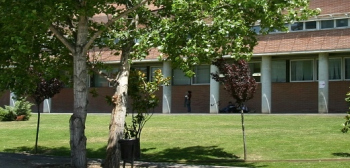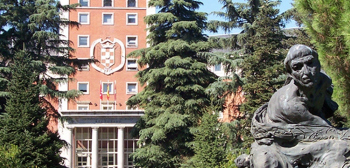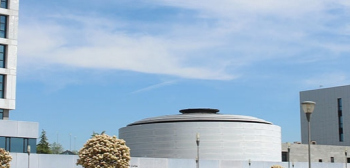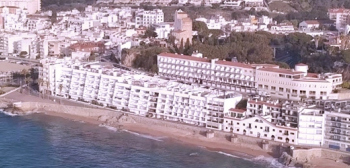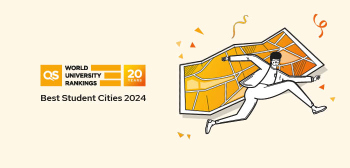格拉纳达大学
About
Read more
Read less
The possibility of the discovery of a new world was emerging even before the conquest of Granada. The city had already been Iberian, Roman and later Jewish and Islamic before the coming together of American and European cultures. The capital of the former Nazarí Kingdom, Granada was the last city in the Iberian Peninsula to be ceded by the Muslims in 1492, an event that resulted in the formation of Spain. The Christian conquest did not taint the city´s brilliance as a cultural center, and sciences and the arts found the best way to develop. The University of Granada was founded in 1531 by Emperor Charles V through a papal bull by Clement VII. In this way, Granada affirmed its status as a university city open to culture, people and beliefs. The institution of Granada continued the tradition of the Arab university of Yusuf I (Madraza, 14th century). With 470 years of tradition, the University of Granada has been the witness of history, from the time of its influence in the social and cultural surroundings of the city up to its development into an intellectual and cultural nucleus in the south of Spain, a period of nearly five centuries. At present it is an institution that is loyal and committed to its environment, so much so that it adheres to the Law of University Reform, which defines universities as centres that serve the public, through teaching, research and the lending of services. Due to the protection by the LRU and the autonomy of universities, the University of Granada has faced in the last few years, the largest growth in its history, placing it among some of the best Spanish universities. Some 70,000 people are directly linked to the University of Granada, among them students, professors, and service and administration staff. The University of Granada currently runs 51 degree courses, 24 diploma courses, 141 doctorate programmes and a wide range of courses such as biology,biochemistry, food science and technology,environmental sciences,statistical sciences and techniquespharmacy, physics, geology,mathematics,medicine and dentistry.
About
The possibility of the discovery of a new world was emerging even before the conquest of Granada. The city had already been Iberian, Roman and later Jewish and Islamic before the coming together of American and European cultures. The capital of the former Nazarí Kingdom, Granada was the last city in the Iberian Peninsula to be ceded by the Muslims in 1492, an event that resulted in the formation of Spain. The Christian conquest did not taint the city´s brilliance as a cultural center, and sciences and the arts found the best way to develop. The University of Granada was founded in 1531 by Emperor Charles V through a papal bull by Clement VII. In this way, Granada affirmed its status as a university city open to culture, people and beliefs. The institution of Granada continued the tradition of the Arab university of Yusuf I (Madraza, 14th century). With 470 years of tradition, the University of Granada has been the witness of history, from the time of its influence in the social and cultural surroundings of the city up to its development into an intellectual and cultural nucleus in the south of Spain, a period of nearly five centuries. At present it is an institution that is loyal and committed to its environment, so much so that it adheres to the Law of University Reform, which defines universities as centres that serve the public, through teaching, research and the lending of services. Due to the protection by the LRU and the autonomy of universities, the University of Granada has faced in the last few years, the largest growth in its history, placing it among some of the best Spanish universities. Some 70,000 people are directly linked to the University of Granada, among them students, professors, and service and administration staff. The University of Granada currently runs 51 degree courses, 24 diploma courses, 141 doctorate programmes and a wide range of courses such as biology,biochemistry, food science and technology,environmental sciences,statistical sciences and techniquespharmacy, physics, geology,mathematics,medicine and dentistry.
University highlights
- 2012#451- 500
- 2014#501-550
- 2015#461-470
- 2016#461-470
- 2017#501-550
- 2018#501-550
- 2019#=495
- 2020#511-520
- 2021#501-510
- 2022#=492
- 2023#=494
- 2024#403
- 2025#=431
- 2026#=401
QS Stars is a rating system that helps you select the right university based on your
interests. It provides a detailed look at an institution, identifying which universities rate highest in
the
specific topics that matter to you, like facilities, graduate employability, social responsibility,
inclusiveness, and more.
Campus locations
Cuesta del Hospicio, s/n, Granada, ES,
Cuesta del Hospicio, s/n , Granada , Spain , 18071
Similar Universities
IE商学院
María de Molina 13, Madrid
胡安卡洛斯国王大学
Calle del Tulipán, Móstoles - Madrid
Deusto大学Deusto商学院
Hermanos Aguirre 2, Bilbao
University College of Hospitality Management Sant Pol de Mar, Barcelona
Ctra. N-II km 664, Sant Pol de Mar
Test preparations
University of Granada
basic
9
no
6829
XL
CN


